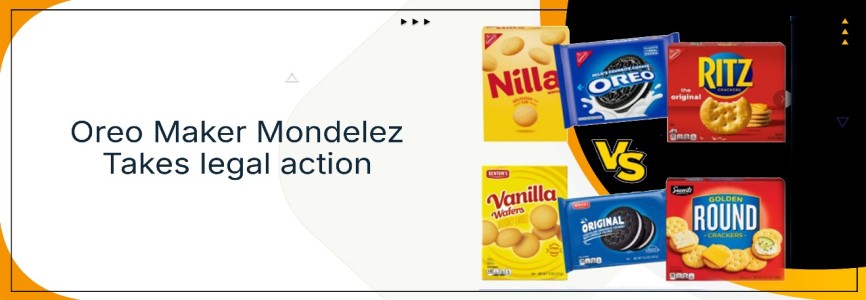In a recent clash between big brands and discount retailers, Mondelez International the global snack giant behind Oreo, Nutter Butter, and Chips Ahoy has filed a lawsuit against Aldi, accusing the supermarket chain of copying its product packaging to mislead shoppers.
The lawsuit, filed in Illinois federal court (USA), claims that Aldi’s private-label products mimic the distinctive look of Mondelez’s popular snack brands. According to Mondelez, Aldi’s store-brand chocolate sandwich cookies, Thin Wheat crackers, and peanut butter sandwich cookies closely resemble Oreo, Wheat Thins, and Nutter Butter packaging. This alleged imitation, Mondelez argues, is not coincidental but a deliberate attempt to ride on the reputation and recognition built by decades of brand loyalty.
Why Packaging Matters
In trademark and intellectual property law, packaging plays an important role in consumer perception and this is known as “trade dress.” It’s not just the brand name or logo; the combination of colors, shapes, fonts, and design elements on the box can create a distinctive visual identity that shoppers instantly associate with a brand.
Mondelez claims Aldi’s packaging for its private-label snacks uses similar layouts, color palettes, and imagery, leading customers to mistakenly believe they are buying a product connected to Mondelez, when they are actually purchasing Aldi’s own version at a lower price. According to the complaint, Aldi has been repeatedly warned about these similarities over the years but made only minor changes or, in some cases, none at all.
Aldi’s Side
Aldi has not yet issued a public response to the lawsuit. However, private-label strategies are common among discount retailers worldwide, where products are often designed to appeal to customers looking for cheaper alternatives to premium brands. The key legal question, however, is whether Aldi crossed the line from “similar” to “confusingly similar” a violation of trade dress protections under U.S. trademark law.
Not the First Packaging Dispute
This is not the first time Aldi has faced legal heat over alleged packaging lookalikes. Similar cases have emerged in Australia, the U.K., and other markets, where large food and beverage companies have accused Aldi of unfairly mimicking well-known brands. These disputes highlight a broader tension between brand owners and private-label retailers over competition, pricing, and consumer trust.
What’s at Stake
Mondelez is seeking a court order to stop Aldi from using the contested packaging designs and is demanding damages for alleged harm to its brand reputation and lost sales. For Aldi, the outcome could affect not only the specific products named in the lawsuit but also its broader approach to packaging design across its private-label range.
Legal experts note that cases like this can set important precedents for how aggressively brand owners can protect the look and feel of their packaging. While International Trademark Registration law clearly protects brand names and logos, trade dress claims often require companies to prove that the overall design of their product is both distinctive and non-functional and that consumers are likely to be misled by similar-looking packaging.
Conclusion
As the case unfolds, it will draw attention not just from legal circles but also from shoppers and competitors across the retail landscape. Will Aldi be forced to change its packaging, or will it successfully defend its private-label designs as fair competition? Either way, the lawsuit shows how powerful and legally significant packaging design has become in the modern consumer marketplace.






























_(b)_of_the_Trademark_Act,_1999_(1)_crop10_thumb.jpg)



_crop10_thumb.jpg)




























_crop10_thumb.jpg)
_crop10_thumb.jpg)






_crop10_thumb.jpg)








_crop10_thumb.jpg)



_crop10_thumb.jpg)





























_crop10_thumb.jpg)

















_crop10_thumb.jpg)






_crop10_thumb.jpg)












































































































































_crop10_thumb.jpg)




































_crop10_thumb.jpg)












_crop10_thumb.jpg)















































_crop10_thumb.jpg)



































































































